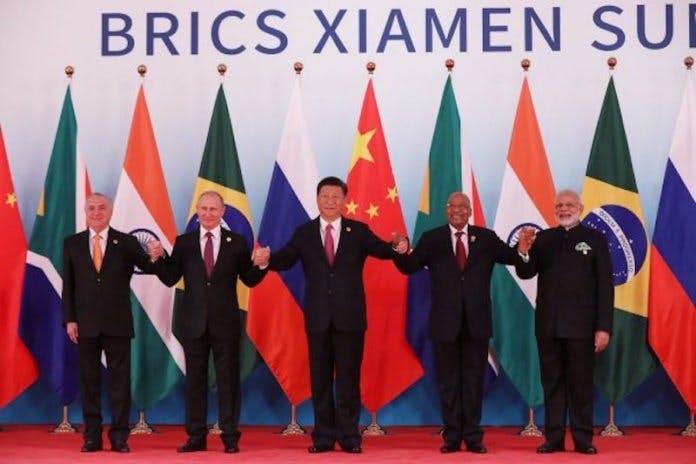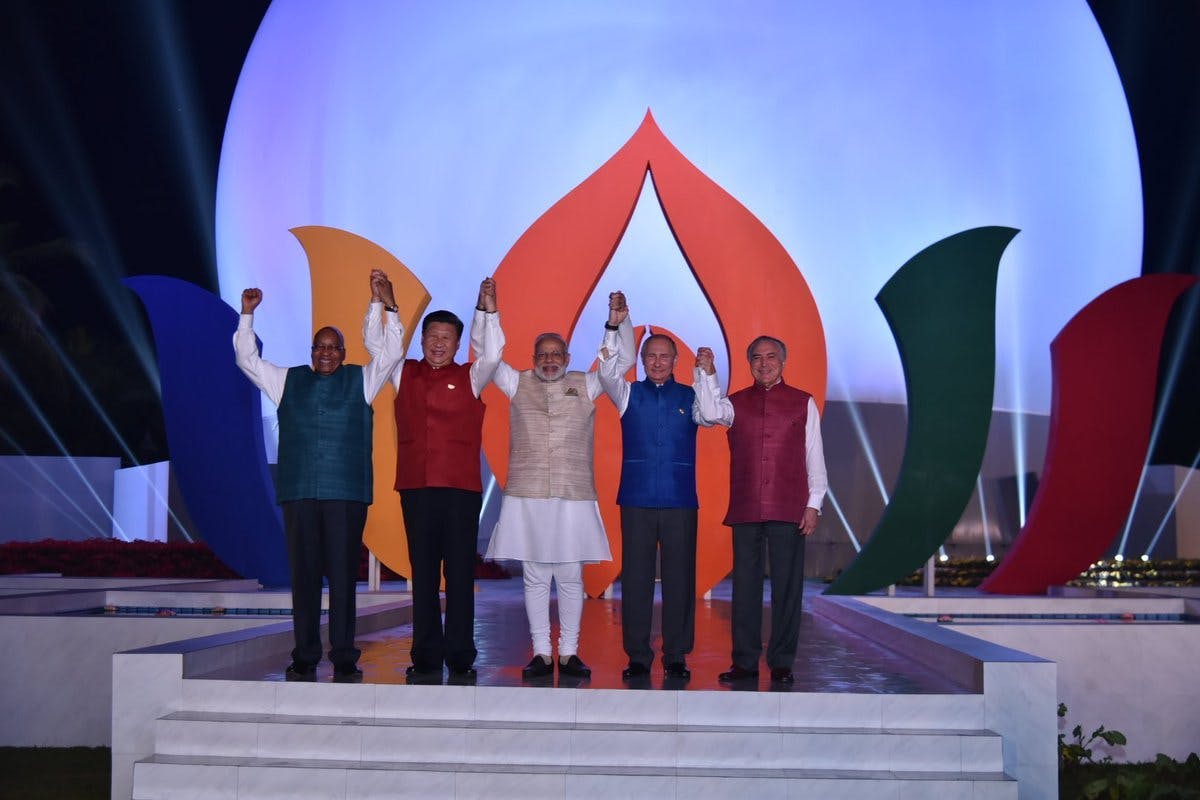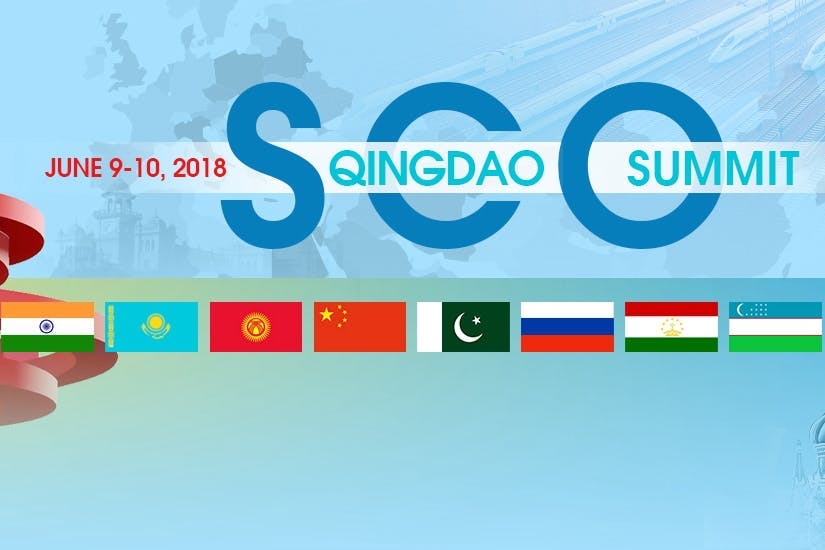Pakistan after BRICS declaration

The recent BRICS Summit of five emerging economies – Brazil, Russia, India, China and South Africa – in Xiamen, China, stirred quite a debate in Pakistan and India. Unlike previous BRICS summits in the organisation’s 10-year life, which hardly anyone noticed in our land, too focused on domestic wrangling and airing politicians’ dirty laundry, this caught much attention in both Rawalpindi and Islamabad.
The uproar was on two clauses in the 43-page declaration – Clauses 47 and 48. Here:
Clause 47: We strongly condemn terrorist attacks resulting in death to innocent Afghan nationals. There is a need for immediate cessation of violence. We reaffirm our support to the people of Afghanistan in their efforts to achieve “Afghan-led and Afghan-owned” peace and national reconciliation, to the ongoing international efforts, including the Moscow Format of consultations on Afghanistan and “Heart of Asia-Istanbul Process”, as well as multimodal connectivity projects to promote peace and stability, to the fight against terrorism and drug-threat, and to the national reconstruction efforts by Afghanistan. We support the efforts of the Afghan National Defense and Security Forces in fighting terrorist organisations.
Clause 48: We, in this regard, express concern on the security situation in the region and violence caused by the Taliban, ISIL/Daish, Al-Qaida and its affiliates including Eastern Turkistan Islamic Movement, Islamic Movement of Uzbekistan, the Haqqani Network, Lashkar-e-Taiba, Jaish-e-Mohammad, TTP and Hizb-ut-Tahrir.”
Subscribe to our YouTube channel: Wali Zahid
Media in both Pakistan and India highlighted clauses 47 and 48 very differently. Chinese media wanted to know from independent analysts like me how to see this in perspective. Here are three questions I received and my replies:
Question 1: What do you think of clauses 47 and 48 from the perspective of Pakistan? What influence will it have on the high-level China-Pakistan relationship?
Wali: Clause 47 deals with Afghanistan specifically. Violence and deaths in Afghanistan, usually attributed to Rawalpindi-supported Afghan Taliban, which Pakistan denies, have been singled out as the most significant issue. The BRICS declaration is clearly supporting the Afghan national defense and security forces. This is a big message to all perpetrators that violence needs to stop and global community would not accept it any more.
Another significance is that BRICS’ call is going beyond the recently restarted Quadrilateral Coordination Group (QCG) process (after SCO communique in June in Astana Summit), which includes China, US, Afghanistan and Pakistan, and bringing in India in the ambit through Heart of Asia-Istanbul Process framework. Pakistan’s security establishment may be uneasy on expanding the ambit to Heart of Asia-Istanbul Process.
BRICS countries, particularly China, need a peaceful and stable Afghanistan to link it with Belt and Road Initiative. Exactly a year ago, on 8 September, first cargo train from China arrived in Afghanistan’s Hairatan port in northern Balkh province.
Back in 2016 on an Independence Day edition of The News, Pakistan’s largest-selling English-language daily, I wrote:
‘It’s time for Pakistan to engage with neighbours on an economic front as their and our interests overlap in trade. My own prediction is that whether some stakeholders like it or not, it’s only a matter of time that our ties with neighbours are going to get better – whether we choose to, or we are made to – under global or Chinese compulsion. Once rivalries are put behind, the region will abound with massive economic opportunity.’
The China and global push I mentioned then is now visible.
Pakistan’s civil and military leadership is trying to reach on one page regarding Afghanistan but it may take time for their divergent perspectives to converge on one point. In the meantime, Chinese leadership will continue to exert pressure.
Clause 48 is quite serious – both in terms of timing and venue.
At the last BRICS summit in Goa, India, China refused to allow use of wording such as cross-border terrorism in the BRICS declaration. China is also putting a technical hold until 2 November on UNSC resolution naming JeM and its chief Azhar Masood as global terrorists. More recently, when US President Trump announced his new Afghanistan policy last month and blamed Pakistan for harbouring terrorists on its soil, China came to Pakistan’s defence.
China has been privately pushing Pakistan to mend its ways, apparently for a year or so, implying that keeping technical hold on UNSC resolution may not be possible much longer. Although in its public stance, China is still defending the Pakistan case. When after the BRICS declaration, China’s foreign ministry spokesperson was asked if BRICS declaration of naming JeM would be carried to UNSC resolution as well, the question was dodged.
China has played its cards very well. It didn’t declare HQN, JeM, LeT or the ilk in BRICS Goa declaration on Indian soil so China is not seen bending under Indian pressure. It also didn’t support Trump’s call so it’s not seen lending support to the US, whose supremacy China is challenging both in economy and world influence. It chose a Chinese city Xiamen, the BRICS venue, to make a declaration on how China wants to fix the regional troubles.
Before President Xi Jinping went with full speed at BRICS in Xiamen, he made sure that China’s border standoff with India at Doklam pass was resolved amicably. Xi is eyeing the next meeting of of the Communist Party for a second five-year term as President. The 19th National Congress is due on 18 October where major leadership reshuffle is expected.
The inclusion of TTP among terror groups is to give Pakistan some face-saving as the victim of TTP violence is Pakistan’s civilian population and security forces.
Question 2: Has Pakistan made any protest to BRICS countries, including China on causes 47, 48?
Wali: What I know so far is that Defence Minister Khurram Dastgir-Khan has rejected the BRICS declaration. After appearing before National Assembly Standing Committee on Defence, Khan denied Pakistan had safe terror havens. Khan’s statement was unnecessary as BRICS declaration did not mention either Pakistan or terrorist safe havens.
On the contrary, Foreign Minister Khawaja Asif in a Geo TV program said that Pakistan has to make a clean break from its past. Which is an admission that it did support terror groups.
Asif said that he doesn’t get why people are surprised over the BRICS terrorist list. ‘These organisations are also banned in Pakistan. During Eidul Azha, specific instructions were issued by Ministry of Interior that no animal hides should be given to these banned organisations.’
Apparently this mixed messaging is to appease both the doves and hawks among the stakeholders. Or, at best to confuse the masses.
Question 3: What impact will it have on the flagship project of China-Pakistan Economic Corridor (CPEC) and Belt & Road (BRI) cooperation?
Wali: CPEC and BRI projects will remain unaffected. China’s civil and military leadership is in constant touch with their Pakistan counterparts.
I imagine that China would have consulted Pakistani leadership at the highest level before going ahead with the BRICS declaration as it’s in China’s DNA to play very very cautiously.
China has also included both India and Pakistan as full members in SCO because it’s the regional peace and prosperity that China is aiming at from both SCO and BRICS platforms.
It’s also in the interest of all regional countries to have a safe and peaceful South Asia for CPEC to bear fruits.
This article first appeared as an Op-Ed in The Nation, Pakistan’s most respected daily.
Wali Zahid is a longtime China watcher and a Pakistan futurist. An award-winning journalist and formerly Editor ofThe News, Lahore, Pakistan’s largest-selling daily, he writes on issues of significance to Pakistan and CPEC & BRI. He was a high-level delegate at Belt & Road Forum in Beijing in May this year. Twitter: @walizahid

Wali Zahid
Wali Zahid is a longtime China watcher and a Pakistan futurist. An award-winning journalist, he writes on issues of significance to Pakistan and CPEC & BRI.
Related posts

